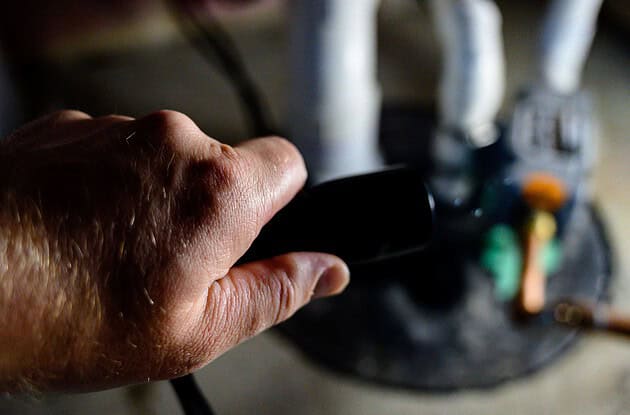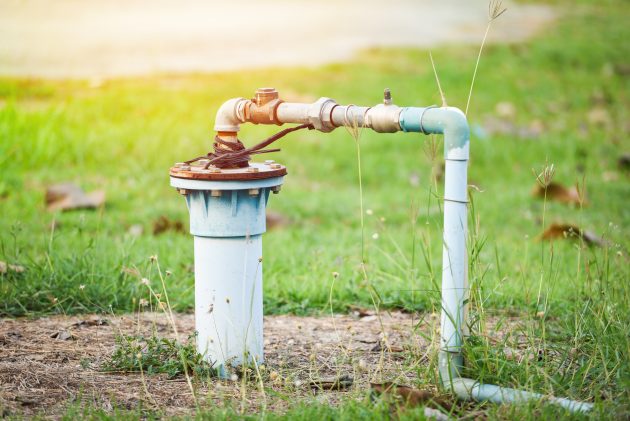Every homeowner has the innate desire to continuously improve one’s house. That’s precisely why the home renovation and improvement industry has always been and will always be booming.

While most projects undertaken by homeowners typically concern the house’s aesthetics, specific projects focus on its utilities instead. A perfect example of these types of projects would be the installation of water well systems. Although it’s primarily focused on providing homeowners with an alternative water source, there’s much more to water well systems than you may think.
What Is A Water Well System?
A water well system is essentially a complex apparatus that turns groundwater or water found underground in the spaces and cracks of rocks and soil, into safe drinking water. The structure consists of several parts, each with its own role in the system. Here’s a closer look at a water well system’s components and their respective functions:
- The well casing is the tube structure consisting of the well opening at the surface on its one end. Meanwhile, the other end extends to the area where groundwater is captured, typically 500 to 1000 feet from the surface. The well casing keeps excess water and dirt out of the system, preventing contaminants from mixing with the water. Well casing is typically made of plastic, stainless steel, or carbon steel.
- At the top of the well casing, you will see the well cap which acts as a lid for the entire structure. It prevents insects, small animals, and other debris from entering the system. Well caps are typically made of plastic or aluminum.
- At the bottom of the well casing, there are what they call well screens, the component responsible for preventing sediments like sand, clay, and dirt from entering the well.
- The pumps are what draw groundwater from the well and into the system to be converted to drinking water. Jet pumps are used for shallow wells with a depth of 25 feet or less, while submersible pumps are installed inside the casing. Submersible pumps can draw water deep underground but requires a power source to operate.
- The pressure tank is where the filtered groundwater, now drinking water, is stored. The tank prevents the drinking water from flowing back to the well system. It’s also responsible for allowing the water to flow inside your home for consumption or use.
As you may imagine, constructing a water well system is by no means an easy task, as the structure can be pretty intricate. But there are certain circumstances where it may be necessary.
On that note, here are five signs you need to start looking for well water solutions:
1. Your Water Bills Are Getting Out Of Hand
A family of four in the United States spends an average of USD$72 a month on water bills. This may go up depending on usage, so this can go 50% higher (USD$115) or 50% lower (USD$36).
However, there are cases where water bills are exceedingly high. This may be the case for houses with a garden, a pool, or more than four people living in the house. Apart from water usage, which is obviously a part of the equation, your water bills may also vary according to the cost of water in your region. For example, the average in Connecticut is USD$69, while it’s USD$26 in Ohio.
Moreover, water bills often get out of hand in rural areas, especially since the water supply is typically limited. If you’re in such a predicament, it may be time to install a water well system.
One of the main advantages of well water is that once you have the system in place, you practically gain ownership of any water you get from the system, meaning you no longer have to pay for it. While it might not be adequate to provide you with all your water needs, it should at least reduce your water bills. All things considered, well water is excellent for saving money.
2. The Climate Is Slowly Getting Hotter
It’s a well-established fact that drought or hot climate negatively impacts water supply. To be precise, when the climate gets hotter, the water levels in reservoirs and streams get drastically lower. When that happens, the water supply provided by the municipalities may dwindle, which can threaten the safety and welfare of communities, but that’s where wells come in.
Once you’ve set up a water well system, you essentially gain access to an endless supply of water. Granted, the rate at which you can get water may be slow at times, but it’s excellent nonetheless.
Of course, you need to install proper water filtration systems to make sure the well water is perfectly safe and healthy to drink or use, though that should be pretty manageable.
3. Your Faucets Are Running More Slowly Than Usual
Sometimes, you’ll notice that faucets inside your home are running more slowly than usual. There are several explanations as to why this may happen. Below are examples of such explanations:
- The local water supplier is experiencing problems
Most of the time, when your local water supplier faces issues, such as a malfunction in their system, the consumers are the ones who suffer the consequences. Unfortunately, in these cases, you can only wait until they can fix the issue. Water pressure may be minimal while they’re in the process of fixing the problem.
- There are recent changes in the city’s water regulations
It’s also possible that your city has made some changes in regards to their water regulations. In this case, the water supplier is forced to comply, which would then affect how they supply water. Again, there’s not much you can do to prevent this, but you can install infrastructures such as water well systems to serve as an alternative.
- You’re sharing pipelines with other people
Certain communities have houses that share pipelines. These are pipelines that run water to multiple houses. What this means is that when your neighbor washes their car or waters their plants, the water pressure in your home will go done. While you won’t be paying for the water they consume, you also won’t be able to get the most out of your money.
You may notice that in these three scenarios, not much can be done to prevent the issue. The least you can do is create an alternative water source, and a water well system is the perfect solution.
4. Water From Your Home Has A Weird Taste And Odor
You may also find yourself drinking water that has a weird odor or taste. There are many reasons as to why water may have a bad taste or unpleasant smell. However, the most reasonable explanation would be that there may have been too many chemicals used to clean the water. It may also be due to contaminants that found their way into the water system.
Here are a few examples of substances that may be the culprit for the bad taste and odor:
- Chlorine
- Hydrogen sulfide
- Metals (e.g., lead, arsenic, mercury, etc.)
- Chloramines
Since chlorine and chloramines are crucial to ensure that water is safe to drink and use, cases where you’re left with weird-tasting or smelling water are normal. While it won’t have immediate effects on your body, you most certainly don’t want to keep drinking that water for a long time. In this scenario, the most logical solution would be to have an alternative source, hence the wells.
Water well systems are particularly excellent in this scenario since wells don’t use chloramines or chlorine to treat the water, unlike local water utility companies and suppliers.
5. Sinks, Showers, And Toilets Have Blue-Green Stains
If you’ve been living in the same house for a long time, there may have been several instances where you’ve found your sinks, toilets, showers, and other utilities donning a blue-green stain.
These stains are typically caused by the dissolution of copper and brass, which usually occurs when the copper pipe and fittings are exposed to water for a long time, hastening corrosion. While it may seem like an issue that only concerns the aesthetics of your home, it may also be an indication that copper and brass have already gotten to your water system, which can be harmful to your health.
In that case, you may need to refurbish your plumbing lines, which, admittedly, is a lot of hassle and tiresome. If you’re not a fan of this solution, you can instead get an alternative water source.
One of the main advantages of a water well system is that the copper levels in groundwater are generally low. Unless your community is near manufacturing or mining operations, the chances of copper getting into your water system is highly unlikely.
FAQs On Water Well System
In case you still have some questions concerning water well systems, here’s a look at some of the most frequently asked questions on the subject and their respective answers:
- How long do water well systems last?
A water well system lasts for 30 to 50 years on average, although you can prolong their lifespan with maintenance. As for well pumps, they should be able to last for ten years.
- How often should you inspect your water well system?
To ensure the water your well system generates is still up to standard, you must regularly inspect the system. Experts recommend testing once a year.
- Are there regulations concerning water well systems?
While there are regulations concerning water systems set by the US Environmental Protection Agency (EPA), these regulations don’t apply to water well systems.
- Which well water filter system is the best?
According to Waterdefense reviews, the best well water filtration system is the Springwell SS1 water filter which uses Air injection oxidation filtration process to remove 7PPM of iron, 8PPM of sulfur and 1PPM of manganese in well water. The system is priced at $2,000 and comes with lifetime warranty.
Final Words
While there are several improvements you may have in mind for your home, you must remember that particular renovations are more critical than others. The installation of water well systems, for example, is extremely crucial, especially if you’re currently seeing any of these five signs. But take note that even after the installation, you must remind yourself to properly maintain the system if you want to get the most value out of your money.















